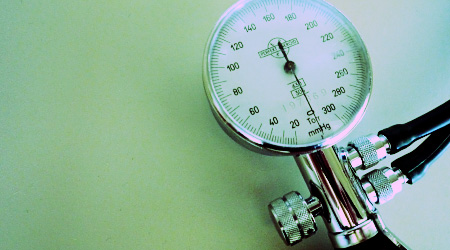Affordable Health Insurance For The Self Employed

Self-employed individuals often have other priorities which take precedence when deciding which health insurance option they are going to purchase. Day-to-day operations, tax implications, inventory and labor management and a myriad of other business-related activities don't leave a lot of time to look for health insurance. In recent years however, an additional health insurance option has become available for self-employed and small business owners which simplifies the process of obtaining in utilizing affordable health insurance.
Due to spiraling healthcare costs and a lack of understanding from consumers of healthcare expenses, a new option has been introduced called a high deductible plan. The most common types of health insurance plans are currently HMOs and PPOs. HMO health insurance has all services provided by the hospital and very select providers. There is often a small co-pay but because providers are tightly controlled, costs can be significantly reduced. PPO health insurance tends to encompass more external providers to allow more options for plan members and costs are controlled through negotiated rates. Both plans however use an older way of thinking by having plan members make small co-pays, have low deductibles and implement and 80 - 20 split. High deductible plans completely alter this business model by essentially forcing consumers to consider all costs of services provided. How do they do this?
The new business structure for high deductible plans puts cost of services at the forefront of a consumers decision-making process. This is done by having the health plan member pay for 100% of all costs up until the deductible is met. Under the old plans, individuals would pay high monthly premiums but then have low out-of-pocket expenses such as $10 office visits and free x-rays and diagnostic services. This is the primary reason health care costs have risen dramatically in recent years. Consumers would utilize services but be ignorant of how much they cost. Under a high deductible plan, a consumer will pay $120 for an office visit or $75 for blood work and if they need a CT Scan they will be looking at $1,000 or more. So the question is how does this benefit the self-employed when looking for affordable health insurance?
This huge shift in health care plan options has only recently made it possible for the self-employed and individuals to purchase their own health insurance. It used to be that the only people able to afford health insurance had employer sponsored health plans where they paid some nominally low amount while their employer picked up the majority of the premium payment. Obviously this won't work for self-employed individuals as they would not have a large employer to pay the difference. High deductible health plans help the self-employed because the large costs associated with utilizing services is offset by incredibly low monthly premiums. It is really a win-win situation for young entrepreneurs and individuals because they tend to very infrequently utilize healthcare resources. If you're never sick and never go to the doctor what is the benefit of paying $700 a month in health insurance premiums. The money saved by having $60 a month premiums for high deductible health insurance can easily be applied to a colonoscopy or CT Scan should the need arise.
As a result of the Patient Protection and Affordable Care Act passed by Congress, many more individuals, including the self-employed, will be purchasing personal health insurance. Health insurance exchanges and employers choosing to pay the penalty instead of pay for health insurance for their employees mean more individuals will have to provide their own health insurance coverage. Self-employed individuals seeking affordable health insurance fortunately have a new option available in high deductible health insurance.
Elsewhere on StockMonkeys.com







